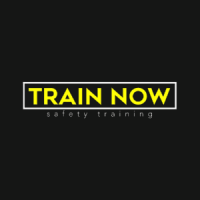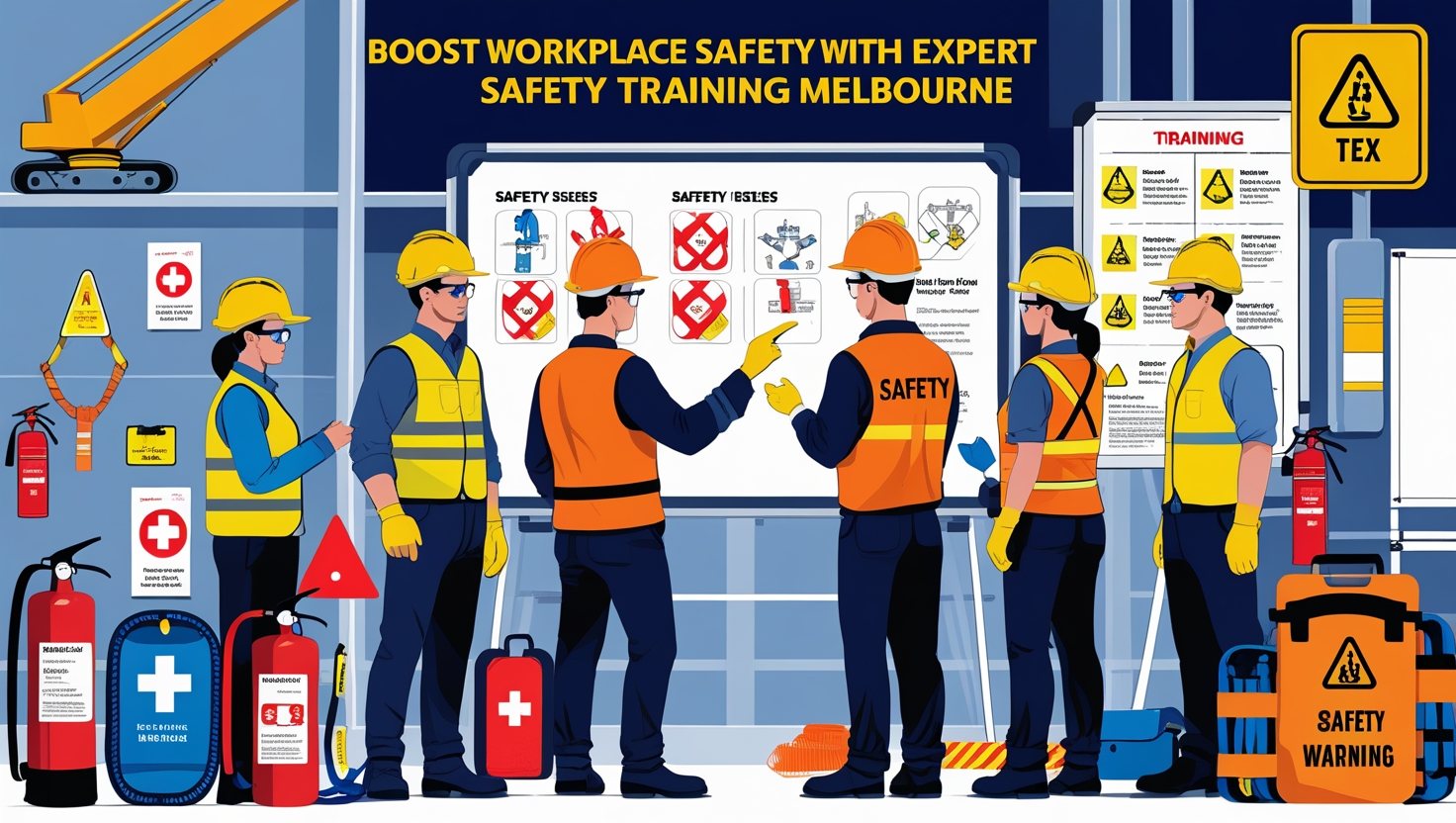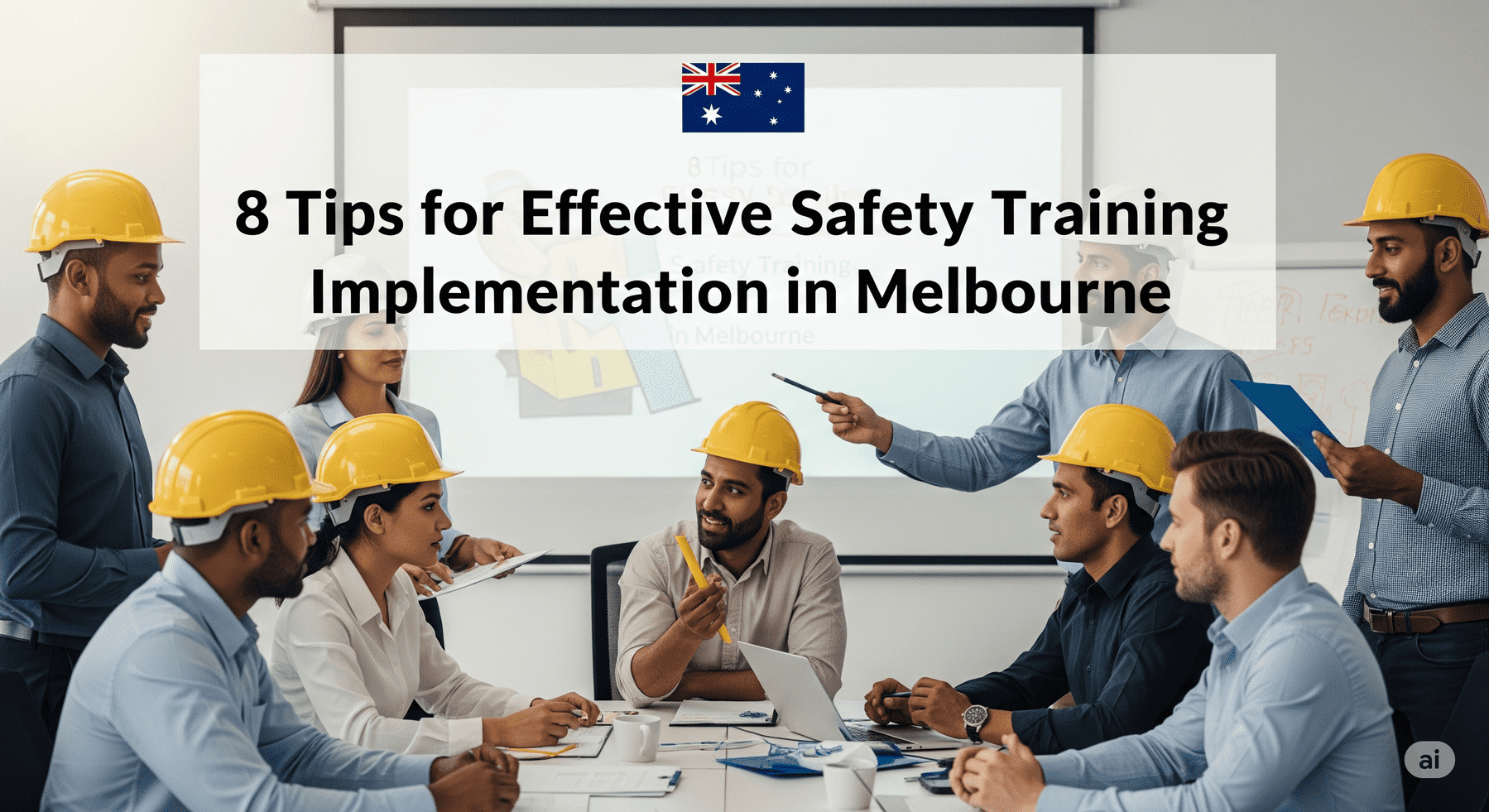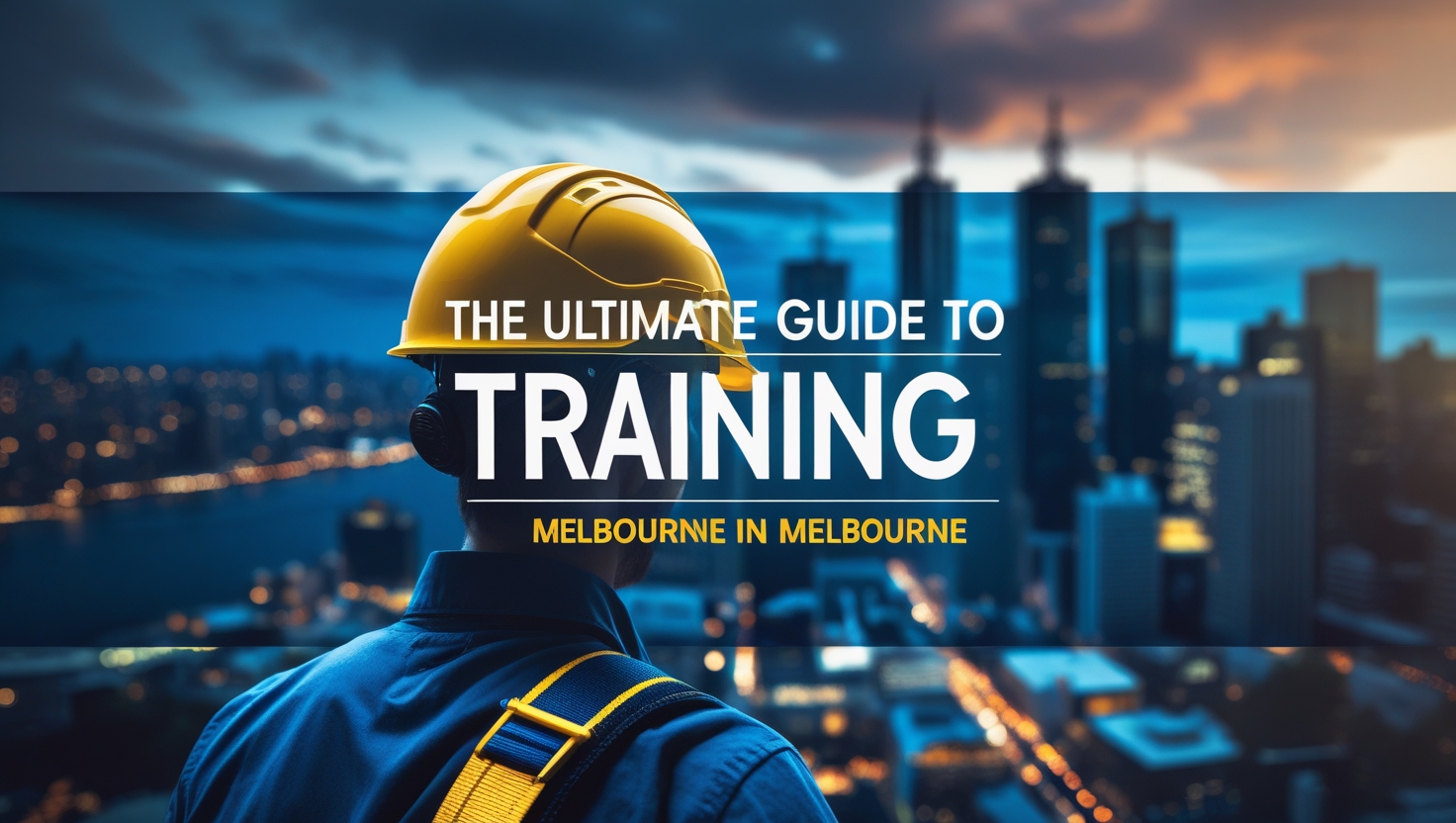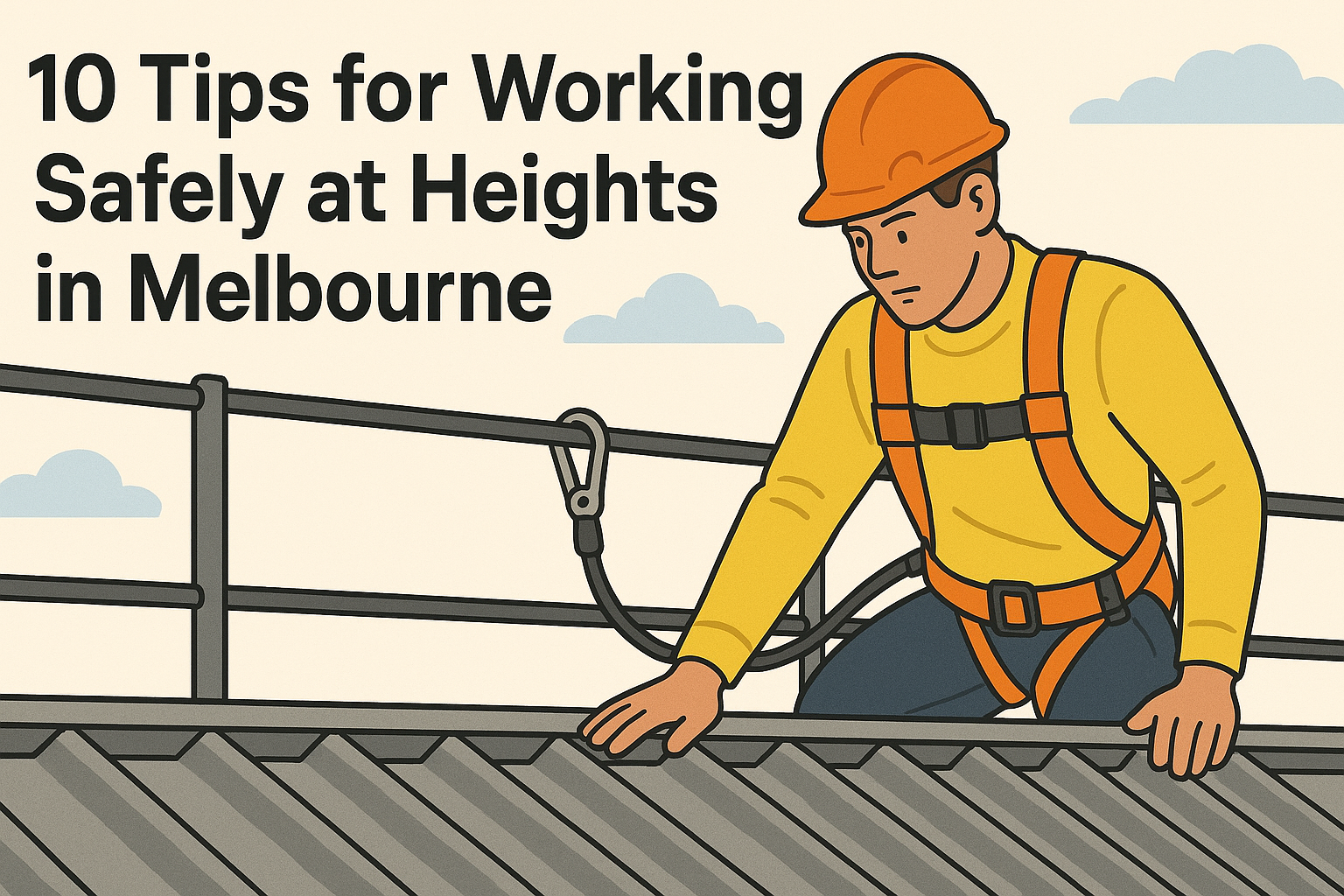Improve Workplace Safety with Our Working Safely at Heights Training in Melbourne
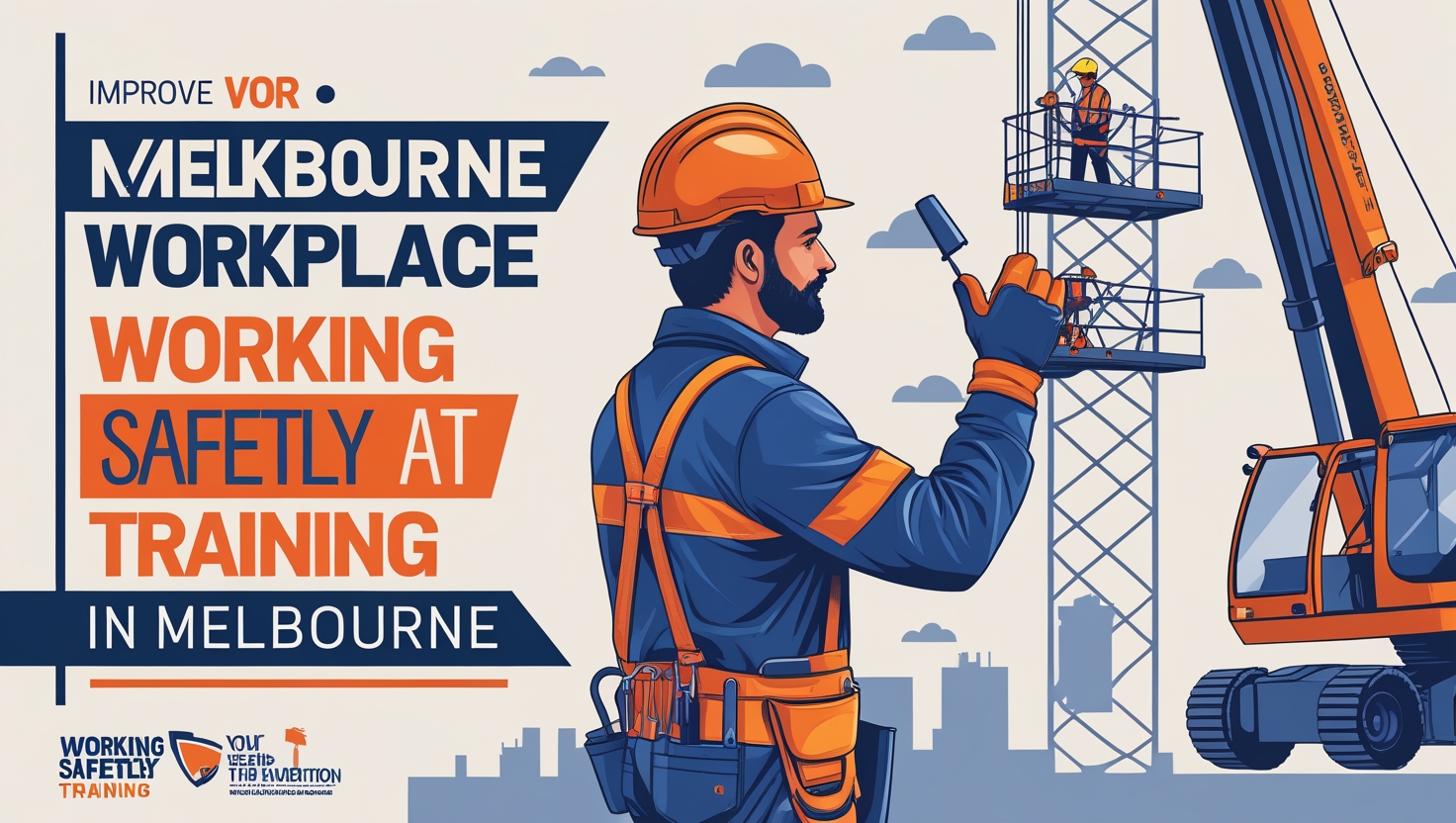
Strong 8k brings an ultra-HD IPTV experience to your living room and your pocket.
Working at heights remains one of the most hazardous tasks in the workplace. Falls from heights continue to be a leading cause of serious injuries and fatalities across Australia. Whether it's construction, maintenance, warehousing, or industrial operations, employers must implement stringent safety protocols. One of the most effective ways to reduce height-related incidents is through specialized safety training.
At our Melbourne-based safety training center, we offer a comprehensive Working Safely at Heights course designed to equip workers with the knowledge, skills, and confidence to operate safely at elevation. This blog delves into how our program enhances workplace safety, reduces risks, and supports compliance with Australian regulations.
1. Understanding the Risks of Working at Heights
Falls from height are responsible for approximately one-third of all construction fatalities in Australia. Workers face numerous dangers such as unstable platforms, lack of fall protection, poor weather conditions, and human error.
Common risks include:
Working on ladders, scaffolding, or rooftops
Using elevated work platforms (EWPs)
Navigating open edges or skylights
Inadequate supervision or training
Our training helps participants identify, assess, and control these risks effectively.
2. Regulatory Requirements in Australia
WorkSafe Victoria and Safe Work Australia have strict guidelines governing work at heights. Employers are legally obligated to:
Conduct risk assessments
Implement fall prevention measures
Provide fall arrest systems where necessary
Ensure all staff working at height are trained and competent
Non-compliance can lead to hefty fines, legal consequences, and reputational damage. Our training ensures your workforce meets these regulatory standards.
3. Course Overview: What You’ll Learn
Our Working Safely at Heights course in Melbourne is delivered by certified trainers with real-world experience. It blends theory with hands-on practical sessions to maximize learning outcomes.
Core Components:
Understanding the legal framework (OHS/WHS Acts and Regulations)
Identifying hazards and assessing risks
Fall protection equipment (harnesses, lanyards, anchor points)
Ladder safety, scaffolding, and EWP best practices
Rescue plans and emergency response protocols
Proper inspection and maintenance of height safety equipment
Participants complete a competency-based assessment to ensure they understand both practical and theoretical elements.
4. Who Should Attend This Training?
This course is ideal for:
Construction workers
Maintenance technicians
Roofers and plumbers
Painters and decorators
Warehouse and logistics workers
Safety officers and supervisors
No prior experience is necessary. We welcome all individuals who may be exposed to height-related tasks at any stage of their career.
5. Custom Training for Specific Industries
Every workplace is unique, and so are its challenges. Our trainers customize modules to align with your industry-specific requirements, including:
Construction: Scaffold safety, edge protection, and site-specific hazards
Utilities: Power line clearance, pole work, and confined access
Telecommunications: Tower climbing, antenna installation, and rigging
Manufacturing and Warehousing: Elevated platform access and mezzanine safety
Our goal is to deliver training that’s practical, relevant, and tailored to your operational environment.
6. Hands-On Practical Experience
We go beyond the classroom. Our training facility in Melbourne is equipped with state-of-the-art simulation environments. This allows trainees to experience real-life scenarios in a controlled, supervised setting. Activities include:
Donning and adjusting harnesses
Climbing scaffolds and platforms
Using fall arrest systems
Performing rescue drills
This immersive experience prepares workers to act safely and confidently in real-world conditions.
7. Certification and National Recognition
Upon successful completion, participants receive a Statement of Attainment for the nationally accredited unit RIIWHS204E - Work safely at heights. This credential is recognized across Australia and is valid across multiple sectors.
Employers can rest assured that their team members have been trained to nationally accepted standards.
8. Boosting Worker Confidence and Morale
Height safety training doesn’t just reduce risks—it empowers workers. Employees who understand how to protect themselves are more confident, productive, and engaged. They know their employer values their safety and invests in their development.
Improved morale often translates to higher retention rates, fewer sick days, and stronger team dynamics.
9. Promoting a Culture of Safety
Training is not a one-off event. It's a cornerstone of a broader safety culture. Our Melbourne-based training also encourages:
Regular toolbox talks
Continuous risk assessments
Equipment inspections
Supervisor engagement and leadership
This culture ensures that safety becomes second nature rather than a checklist.
10. Real-Life Impact: Case Study from a Melbourne Construction Site
One of our clients, a leading construction firm in Melbourne, reported a 75% reduction in height-related incidents within six months of enrolling their workforce in our course.
In one instance, a worker identified a faulty anchor point during a routine pre-check, thanks to the knowledge gained during training. The issue was resolved before an incident could occur, potentially saving a life.
11. Flexible Training Options
We offer multiple delivery modes to suit your operational schedule:
On-site training at your workplace
In-person classes at our Melbourne facility
Weekend and after-hours sessions
Group bookings with tailored content
This flexibility ensures minimal disruption to business operations while maximizing safety outcomes.
12. Keeping Up with Evolving Safety Standards
Height safety technology and regulations continue to evolve. Our trainers stay updated with the latest best practices, legislative changes, and equipment innovations. This ensures our training remains current, relevant, and compliant with evolving standards.
13. Why Choose Us?
Experienced Trainers: Industry professionals with practical knowledge
Modern Facilities: Realistic training simulations in Melbourne
Custom Content: Aligned with your industry and equipment
National Accreditation: RTO-delivered certification
Affordable Pricing: Competitive rates with group discounts available
Conclusion
When it comes to workplace safety, especially at heights, cutting corners is not an option. Our Working Safely at Heights Training in Melbourne offers an effective, practical, and nationally recognized solution to keeping your workforce safe. It not only meets compliance requirements but also fosters a culture of safety, confidence, and accountability.
Whether you’re an employer striving for zero incidents or a worker looking to upskill and protect yourself, this training is a critical step in your journey.
FAQs
Q1: How long does the Working Safely at Heights course take?
The standard course duration is one day (approximately 8 hours), combining both theory and hands-on practical assessments.
Q2: Is the training recognized nationally?
Yes, participants receive a Statement of Attainment for RIIWHS204E, which is valid and recognized across Australia.
Q3: What should I wear or bring to the training?
Participants should wear comfortable workwear, enclosed shoes, and bring a photo ID. All safety equipment will be provided during training.
Q4: Can we organize on-site training at our facility?
Absolutely. We provide tailored onsite training to businesses across Melbourne to meet specific workplace needs.
Q5: Do you offer refresher courses?
Yes. Regular refresher training is recommended to maintain safety standards and stay updated with changing regulations.
Note: IndiBlogHub features both user-submitted and editorial content. We do not verify third-party contributions. Read our Disclaimer and Privacy Policyfor details.

